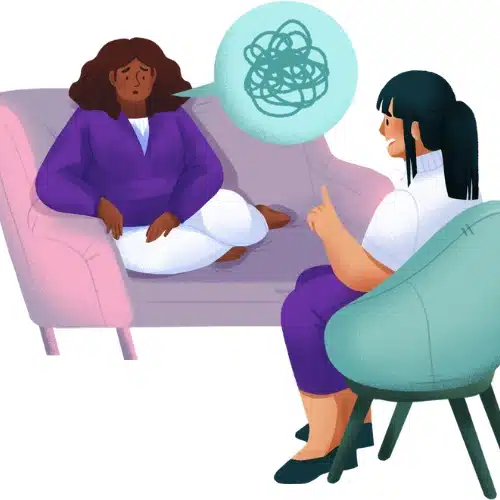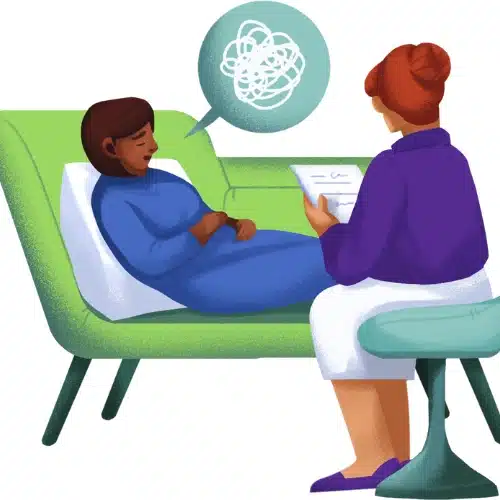HYPNOTHERAPIST
Hypnotherapy Professionals Throughout Spain
Looking for a trusted hypnotherapist near you? Discover the life-changing benefits of expert hypnotherapy with Therapy to Freedom! Whether you’re struggling with anxiety, phobias, addiction, or low self-esteem, our powerful, results-driven approach works directly with your subconscious to help you break free from what’s been holding you back. With flexible online and in-person sessions available across Spain


AS FEATURED IN

LOOKING FOR A PROFESSIONAL HYPNOTHERAPIST?
Looking for a trusted hypnotherapist near you? Discover the life-changing benefits of expert hypnotherapy with Hypnotherapist ES! Whether you’re dealing with anxiety, phobias, addiction, or low self-esteem, our powerful, results-focused approach works with your subconscious mind to help you overcome what’s holding you back. With online and in-person sessions available across Spain, including in Marbella, Madrid, and the Costa del Sol, now is the perfect time to take control of your life and feel lighter, freer, and more empowered.
If you’re searching for a hypnotherapist in Spain, choosing someone with the right experience, qualifications, and approach is key. At Hypnotherapist ES, we help you identify and transform the deep-rooted beliefs and behaviours that impact your daily life. Hypnotherapy offers a direct path to change by working with the subconscious mind—helping you break negative cycles, ease emotional burdens, and build lasting confidence. Many clients report feeling real progress after just a few sessions.
Whether you’re an adult looking to gain clarity, a couple working through challenges, or a parent supporting a child or teenager, we offer compassionate, tailored care in English. All sessions are available across Spain, either in person or online via Zoom, giving you flexibility and ongoing support wherever you’re based.
Take the first step today. If you’re ready to experience meaningful, lasting change, contact Hypnotherapist ES and book your free discovery call. Expert hypnotherapy in Spain is just a click away.

Ready to take the first step towards lasting change?
Contact us today to book your free discovery call or ask any questions, we’re here to help.
How Hypnotherapiest.es Can Help
Therapists each have 10 to 40 years of experience, are accredited and insured to practice privately.
Therapists meet our rigorous selection criteria and highly skilled to ensure you receive the best service.
Not satisfied with your first consultation? Try a meeting with another therapist free of charge.

Quality Standards
Your wellbeing is our highest priority. That’s why we uphold the highest standards when it comes to the professionals we introduce. We only work with fully qualified, experienced hypnotherapists who hold recognised certifications and credentials within their specific fields of expertise.
Each practitioner we feature has undergone thorough training and meets strict professional criteria to ensure they deliver safe, ethical, and effective hypnotherapy. Whether you’re seeking support for anxiety, addiction, trauma, or confidence issues, you can be confident that the therapist you’re connected with has the skills and experience to help.
We believe in building trust from the very beginning. That’s why we carefully vet every professional listed on our platform—so you can move forward with confidence, knowing you’re in capable hands.





Looking for an Online Hypnotherapist?
Contact us today to book your free discovery call or ask any questions, we’re here to help.
How it Works
We offer availability with highly experienced therapists suited to your needs and book the appointment.
Meet the practitioner and begin the road to self-improvement. Have any concerns? Let us know so we can assist.
Find a Therapist Near Me

The Benefits of Hiring a Hypnotherapist

Hypnotherapy is a clinically recognised approach that can significantly enhance mental and emotional well-being. By guiding individuals into a deeply relaxed yet focused state, hypnotherapy helps reduce stress and manage anxiety more effectively. This calm, therapeutic state allows for the exploration and reframing of limiting beliefs, often rooted in past experiences, without feeling overwhelmed. As a result, many clients experience a lasting sense of emotional relief, improved resilience, and a more positive mindset.
In addition to emotional support, hypnotherapy can offer practical, measurable lifestyle improvements. Many individuals use hypnotherapy to help with smoking cessation, weight management, or breaking unwanted habits. Others turn to it to improve sleep quality, build confidence, or boost motivation in both professional and personal areas of life. Hypnotherapy can also help sharpen focus and enhance performance, making it useful for athletes, performers, or anyone facing high-pressure situations. Sessions are tailored by a trained and certified hypnotherapist, ensuring you receive personalised care grounded in professional practice.
![]() Reduced stress and anxiety through deep relaxation and reframing of negative thoughts.
Reduced stress and anxiety through deep relaxation and reframing of negative thoughts.
![]() Healing from trauma, phobias, or past emotional experiences by changing how they are processed.
Healing from trauma, phobias, or past emotional experiences by changing how they are processed.
![]() Improved self-esteem and confidence by replacing limiting beliefs with empowering suggestions.
Improved self-esteem and confidence by replacing limiting beliefs with empowering suggestions.
![]() Support with quitting smoking, losing weight, or creating new, healthier habits.
Support with quitting smoking, losing weight, or creating new, healthier habits.
![]() Better sleep and relaxation by addressing the root causes of insomnia and restlessness.
Better sleep and relaxation by addressing the root causes of insomnia and restlessness.
![]() Enhanced performance in sport, business, or creative fields through improved focus and mindset.
Enhanced performance in sport, business, or creative fields through improved focus and mindset.
![]() A safe, structured, and personalised approach led by a qualified professional.
A safe, structured, and personalised approach led by a qualified professional.
![]() More effective than generic self-help tools, offering targeted guidance and long-term results.
More effective than generic self-help tools, offering targeted guidance and long-term results.
Is Hypnotherapy Right for Me?

Choosing hypnotherapy is a very personal decision, and one that many people find to be life-changing. If you’re feeling stuck, anxious, unmotivated, or overwhelmed by unhelpful patterns of thought or behaviour, hypnotherapy may offer you a new way forward. This therapeutic approach helps you access your subconscious mind, where deep-seated beliefs and emotional blocks are held, and gently works to shift those patterns. It is particularly useful for people who have tried other forms of support but still feel that something is holding them back.
You don’t need to have a specific mental health diagnosis to benefit from hypnotherapy. It’s equally valuable for those seeking emotional clarity, improved self-belief, or help with a particular issue such as smoking cessation, low confidence, or a fear that limits your daily life. Hypnotherapy can be effective whether you’re dealing with long-term challenges or simply want to improve your mental wellness. If you’re open to a relaxed, guided experience led by a professional therapist, this gentle yet powerful form of therapy may be exactly what you need.
![]() You feel stuck in patterns of negative thinking, self-doubt, or procrastination.
You feel stuck in patterns of negative thinking, self-doubt, or procrastination.
![]() You’ve tried other therapies or self-help tools with limited success.
You’ve tried other therapies or self-help tools with limited success.
![]() You’re open to holistic or subconscious-based methods for healing and change.
You’re open to holistic or subconscious-based methods for healing and change.
![]() You struggle with anxiety, fears, low confidence, or emotional triggers.
You struggle with anxiety, fears, low confidence, or emotional triggers.
![]() You want to build better habits, improve focus, or reach personal goals.
You want to build better habits, improve focus, or reach personal goals.
![]() You’re looking for a calm, structured approach tailored to your needs.
You’re looking for a calm, structured approach tailored to your needs.
What Can Hypnotherapy Help With?

Hypnotherapy is a highly versatile form of therapy that can support clients with a wide range of emotional, psychological, and behavioural challenges. By working directly with the subconscious mind, hypnotherapy can uncover and gently reframe deeply rooted beliefs that may be holding you back. This makes it especially effective for issues that feel repetitive, stuck, or difficult to resolve through logic or willpower alone. Whether you’re struggling with anxiety, low self-worth, or unhealthy habits, hypnotherapy can provide a structured, supportive space for long-lasting change.
It’s suitable for both long-standing concerns and more recent emotional blocks. Hypnotherapy is also helpful for performance-based goals, such as building confidence in public speaking or preparing for an exam. Sessions are tailored to your needs and can be adapted to support both adults and young people. While it’s not a replacement for medical treatment, hypnotherapy is often used alongside other therapeutic approaches to create deeper and more lasting results.
![]() Anxiety and stress management
Anxiety and stress management
![]() Confidence and self-esteem building
Confidence and self-esteem building
![]() Phobias and fears (e.g., flying, public speaking, heights)
Phobias and fears (e.g., flying, public speaking, heights)
![]() Breaking habits like smoking or nail biting
Breaking habits like smoking or nail biting
![]() Sleep problems, including insomnia or restless sleep
Sleep problems, including insomnia or restless sleep
![]() Emotional regulation, including anger, grief, or guilt
Emotional regulation, including anger, grief, or guilt
![]() Disordered eating or body image concerns
Disordered eating or body image concerns
![]() Motivation, focus, and goal setting
Motivation, focus, and goal setting
![]() Preparation for childbirth or surgery (hypnobirthing/medical anxiety)
Preparation for childbirth or surgery (hypnobirthing/medical anxiety)
![]() Support during life transitions (divorce, relocation, career change)
Support during life transitions (divorce, relocation, career change)
PROFESSIONAL HYPNOTHERAPY SERVICES
Before getting in touch, we kindly ask that you take a moment to read through our FAQs. Many common questions about our services, session formats, pricing, and what to expect from hypnotherapy are answered there. This helps us respond more efficiently and ensures you have all the information you need before your first session. Thank you for your understanding!
How can I find a Hypnotherpoist near me?
 A hypnotherapist is a trained professional who uses guided relaxation and focused attention to help clients enter a trance-like state known as hypnosis. In this state, individuals are more receptive to positive suggestions and can access deeper levels of their mind to overcome challenges, reframe behaviours, and process emotions. Hypnotherapists often work with issues such as anxiety, phobias, smoking cessation, weight loss, and past trauma. In Spain, a hypnotherapist may also specialise in subconscious reprogramming or work alongside other holistic methods. It’s important to choose a qualified practitioner who is experienced and trustworthy.
A hypnotherapist is a trained professional who uses guided relaxation and focused attention to help clients enter a trance-like state known as hypnosis. In this state, individuals are more receptive to positive suggestions and can access deeper levels of their mind to overcome challenges, reframe behaviours, and process emotions. Hypnotherapists often work with issues such as anxiety, phobias, smoking cessation, weight loss, and past trauma. In Spain, a hypnotherapist may also specialise in subconscious reprogramming or work alongside other holistic methods. It’s important to choose a qualified practitioner who is experienced and trustworthy.
![]() Helps clients enter a relaxed, focused state of awareness
Helps clients enter a relaxed, focused state of awareness
![]() Supports behavioural change through guided suggestion
Supports behavioural change through guided suggestion
![]() Addresses emotional issues, phobias, addictions, and habits
Addresses emotional issues, phobias, addictions, and habits
![]() May use other tools like NLP, CBT, or belief-based techniques
May use other tools like NLP, CBT, or belief-based techniques
![]() Works ethically and professionally to support client wellbeing
Works ethically and professionally to support client wellbeing
What should I expect after my session?
 After a hypnotherapy session, most people report:
After a hypnotherapy session, most people report:
![]() Deep relaxation or light alertness
Deep relaxation or light alertness
![]() Subtle emotional release or clarity
Subtle emotional release or clarity
![]() Enhanced motivation or positive mood
Enhanced motivation or positive mood
You may be encouraged to:
![]() Practice daily self-hypnosis or visualisations
Practice daily self-hypnosis or visualisations
![]() Keep a journal of changes noticed
Keep a journal of changes noticed
![]() Implement coping strategies discussed
Implement coping strategies discussed
Follow‑up supports your new patterns, ensuring continued growth. You’ll leave feeling empowered, clearer about your goals, and confident in your ability to build on that shift long-term.
Will I lose control or be unconscious during hypnosis?
 Not at all, hypnosis is NOT a form of unconsciousness. During hypnotherapy, you remain fully aware, able to hear and respond. You retain complete control at all times. It’s a deeply relaxed, yet focused state of mind, not sleep. You can choose to slow down, pause, or emerge from hypnosis at any point. Our aim is to help you access inner resources while feeling safe, supported, and empowered throughout the process.
Not at all, hypnosis is NOT a form of unconsciousness. During hypnotherapy, you remain fully aware, able to hear and respond. You retain complete control at all times. It’s a deeply relaxed, yet focused state of mind, not sleep. You can choose to slow down, pause, or emerge from hypnosis at any point. Our aim is to help you access inner resources while feeling safe, supported, and empowered throughout the process.
How long is each Therapy session?
 A typical hypnotherapy session lasts between 60 and 90 minutes, although initial intake may take longer, up to 2 hours, to fully understand your background and goals. Subsequent follow-ups are usually shorter (45–60 minutes), focusing on induction, therapeutic work, and post-session debrief. Children and teens often have shorter, 20–40 minute sessions based on age and concentration span.
A typical hypnotherapy session lasts between 60 and 90 minutes, although initial intake may take longer, up to 2 hours, to fully understand your background and goals. Subsequent follow-ups are usually shorter (45–60 minutes), focusing on induction, therapeutic work, and post-session debrief. Children and teens often have shorter, 20–40 minute sessions based on age and concentration span.
What does a hypnotherapist do?
 A hypnotherapist is a trained professional who uses guided relaxation and focused attention to help clients enter a trance-like state known as hypnosis. In this state, individuals are more receptive to positive suggestions and can access deeper levels of their mind to overcome challenges, reframe behaviours, and process emotions. Hypnotherapists often work with issues such as anxiety, phobias, smoking cessation, weight loss, and past trauma. In Spain, a hypnotherapist may also specialise in subconscious reprogramming or work alongside other holistic methods. It’s important to choose a qualified practitioner who is experienced and trustworthy.
A hypnotherapist is a trained professional who uses guided relaxation and focused attention to help clients enter a trance-like state known as hypnosis. In this state, individuals are more receptive to positive suggestions and can access deeper levels of their mind to overcome challenges, reframe behaviours, and process emotions. Hypnotherapists often work with issues such as anxiety, phobias, smoking cessation, weight loss, and past trauma. In Spain, a hypnotherapist may also specialise in subconscious reprogramming or work alongside other holistic methods. It’s important to choose a qualified practitioner who is experienced and trustworthy.
![]() Helps clients enter a relaxed, focused state of awareness
Helps clients enter a relaxed, focused state of awareness
![]() Supports behavioural change through guided suggestion
Supports behavioural change through guided suggestion
![]() Addresses emotional issues, phobias, addictions, and habits
Addresses emotional issues, phobias, addictions, and habits
![]() May use other tools like NLP, CBT, or belief-based techniques
May use other tools like NLP, CBT, or belief-based techniques
![]() Works ethically and professionally to support client wellbeing
Works ethically and professionally to support client wellbeing
What common issues can Hypnotherapy help with?
 Hypnotherapy is effective for a wide range of emotional, behavioural, and psychological challenges, including:
Hypnotherapy is effective for a wide range of emotional, behavioural, and psychological challenges, including:
![]() Anxiety and panic disorders
Anxiety and panic disorders
![]() Depression and low mood
Depression and low mood
![]() Sleep difficulties and insomnia
Sleep difficulties and insomnia
![]() Phobias and fears
Phobias and fears
![]() Addictions and cravings
Addictions and cravings
![]() ADHD and focus issues
ADHD and focus issues
![]() Low self-esteem and self-worth
Low self-esteem and self-worth
![]() Trauma and PTSD
Trauma and PTSD
![]() Grief, loss, and bereavement
Grief, loss, and bereavement
![]() Stress and burnout
Stress and burnout
![]() Habit change (e.g. smoking cessation, nail-biting)
Habit change (e.g. smoking cessation, nail-biting)
![]() Menopause symptoms and hot flashes
Menopause symptoms and hot flashes
![]() IBS and chronic pain
IBS and chronic pain
![]() Its versatility makes it a valuable complementary tool within broader therapeutic care.
Its versatility makes it a valuable complementary tool within broader therapeutic care.
How quickly will I see results with hypnotherapy?
 The speed of results varies depending on the issue and the individual. Some people experience noticeable changes, like reduced anxiety, improved sleep, or diminished cravings, after just one session. More complex issues, such as deep-rooted trauma, chronic stress, or ingrained habits, usually require several sessions. As a general guideline:
The speed of results varies depending on the issue and the individual. Some people experience noticeable changes, like reduced anxiety, improved sleep, or diminished cravings, after just one session. More complex issues, such as deep-rooted trauma, chronic stress, or ingrained habits, usually require several sessions. As a general guideline:
![]() 1–2 sessions: Simple habits, motivation, relaxation
1–2 sessions: Simple habits, motivation, relaxation
![]() 3–5 sessions: Moderate challenges, cravings
3–5 sessions: Moderate challenges, cravings
![]() 6+ sessions: Deeper emotional patterns, trauma
6+ sessions: Deeper emotional patterns, trauma
We tailor the number of sessions to your unique needs. Progress is monitored throughout, and we adjust the plan to ensure you’re moving steadily toward your goals.
How effective is hypnotherapy for long‑standing habits or addictions?
 Hypnotherapy is highly effective for addressing entrenched habits and addictions because it works directly with the subconscious drivers behind behaviour. Long‑standing habits often stem from automatic, conditioned responses that are deeply rooted in our minds. Through guided hypnosis, we can:
Hypnotherapy is highly effective for addressing entrenched habits and addictions because it works directly with the subconscious drivers behind behaviour. Long‑standing habits often stem from automatic, conditioned responses that are deeply rooted in our minds. Through guided hypnosis, we can:
![]() Identify the emotional triggers behind these habits
Identify the emotional triggers behind these habits
![]() Reframe underlying beliefs (e.g. “I can’t cope without it”)
Reframe underlying beliefs (e.g. “I can’t cope without it”)
Create new mental associations using suggestion
Clients frequently experience significant reduction in cravings and stronger self-control after just a few sessions. Consistency and client commitment are vital, and when combined, hypnotherapy can offer transformative results even for long-held patterns.
How does hypnotherapy work?
 Hypnotherapy is a therapeutic approach that uses hypnosis to access the subconscious mind and create lasting change. It involves guiding a client into a deep state of relaxation where the critical, analytical part of the mind is quietened, allowing new beliefs or behaviours to take root more easily. Hypnotherapy is not about mind control—it’s a collaborative process where the client remains in control and aware. It’s effective for a range of emotional, physical, and behavioural issues, including anxiety, insomnia, low self-esteem, and addiction. Many people in Spain turn to hypnotherapy for personal growth or as an alternative to traditional counselling.
Hypnotherapy is a therapeutic approach that uses hypnosis to access the subconscious mind and create lasting change. It involves guiding a client into a deep state of relaxation where the critical, analytical part of the mind is quietened, allowing new beliefs or behaviours to take root more easily. Hypnotherapy is not about mind control—it’s a collaborative process where the client remains in control and aware. It’s effective for a range of emotional, physical, and behavioural issues, including anxiety, insomnia, low self-esteem, and addiction. Many people in Spain turn to hypnotherapy for personal growth or as an alternative to traditional counselling.
![]() Uses focused relaxation to reach the subconscious
Uses focused relaxation to reach the subconscious
![]() Encourages mindset shifts and emotional healing
Encourages mindset shifts and emotional healing
![]() Suitable for stress, trauma, confidence, and more
Suitable for stress, trauma, confidence, and more
![]() Sessions are safe, personalised, and empowering
Sessions are safe, personalised, and empowering
![]() Offers fast, lasting results in many cases
Offers fast, lasting results in many cases
Are the results of hypnotherapy permanent?
 Results from hypnotherapy can be long-lasting, but like gardening, they benefit from regular upkeep. Many clients experience profound shifts maintained over time, especially when they practise follow-up tools such as self-hypnosis and mindfulness. That said:
Results from hypnotherapy can be long-lasting, but like gardening, they benefit from regular upkeep. Many clients experience profound shifts maintained over time, especially when they practise follow-up tools such as self-hypnosis and mindfulness. That said:
![]() Prompts from environment or stress may re-trigger old patterns
Prompts from environment or stress may re-trigger old patterns
![]() Clients learn relapse-prevention methods and coping strategies
Clients learn relapse-prevention methods and coping strategies
![]() Occasional “top-up” sessions can help reinforce progress
Occasional “top-up” sessions can help reinforce progress
Overall, hypnotherapy equips you with the mindset and tools for lifelong resilience—not just a quick fix.
Can hypnotherapy work for children and teenagers?
 Yes. Hypnotherapy can be highly effective for young people, though methods are adapted to suit their learning style and developmental stage. With children and teens, we:
Yes. Hypnotherapy can be highly effective for young people, though methods are adapted to suit their learning style and developmental stage. With children and teens, we:
![]() Use imaginative or playful inductions
Use imaginative or playful inductions
![]() Keep sessions shorter (20–40 minutes)
Keep sessions shorter (20–40 minutes)
Involve parents in setting realistic goals
Typical issues addressed include exam nerves, anxiety, confidence, behavioural difficulties, focus, and sleep. Young clients often enjoy the sessions and respond rapidly to suitably adapted, friendly techniques.
Is Rapid Transformational Therapy (RTT) a form of Hypnotherapy?
 Rapid Transformational Therapy (RTT) is a powerful, hybrid therapy method developed by Marisa Peer. RTT combines the most effective aspects of hypnotherapy, NLP, psychotherapy, and cognitive behavioural therapy to deliver fast and lasting results. It works by accessing the subconscious mind to uncover root causes of issues, reframe limiting beliefs, and embed positive, empowering suggestions. RTT is especially helpful for deep-rooted problems like anxiety, trauma, emotional blocks, and low self-worth. Many clients experience a significant shift after just one to three sessions. In Spain, RTT is becoming a popular choice for those seeking transformational change without long-term therapy.
Rapid Transformational Therapy (RTT) is a powerful, hybrid therapy method developed by Marisa Peer. RTT combines the most effective aspects of hypnotherapy, NLP, psychotherapy, and cognitive behavioural therapy to deliver fast and lasting results. It works by accessing the subconscious mind to uncover root causes of issues, reframe limiting beliefs, and embed positive, empowering suggestions. RTT is especially helpful for deep-rooted problems like anxiety, trauma, emotional blocks, and low self-worth. Many clients experience a significant shift after just one to three sessions. In Spain, RTT is becoming a popular choice for those seeking transformational change without long-term therapy.
![]() Integrates hypnosis, CBT, NLP, and psychotherapy
Integrates hypnosis, CBT, NLP, and psychotherapy
![]() Targets the root cause of emotional and behavioural issues
Targets the root cause of emotional and behavioural issues
![]() Often delivers rapid results within 1–3 sessions
Often delivers rapid results within 1–3 sessions
![]() Suitable for anxiety, confidence, phobias, trauma, and more
Suitable for anxiety, confidence, phobias, trauma, and more
![]() Widely used internationally, including across Spain
Widely used internationally, including across Spain
What is subconscious therapy and how can it help me?
 Subconscious therapy refers to any therapeutic method that works directly with the subconscious mind, the part of your mind responsible for habits, beliefs, memories, and automatic responses. Unlike talk therapy, subconscious therapy bypasses the conscious mind to address deep-rooted emotional blocks or limiting beliefs. Techniques like hypnotherapy, RTT, and visualisation are all forms of subconscious therapy. It’s especially effective for issues like trauma, self-sabotage, addictions, and emotional patterns that don’t respond to logic or willpower alone. In Spain, more people are exploring subconscious therapy to create lasting change from within.
Subconscious therapy refers to any therapeutic method that works directly with the subconscious mind, the part of your mind responsible for habits, beliefs, memories, and automatic responses. Unlike talk therapy, subconscious therapy bypasses the conscious mind to address deep-rooted emotional blocks or limiting beliefs. Techniques like hypnotherapy, RTT, and visualisation are all forms of subconscious therapy. It’s especially effective for issues like trauma, self-sabotage, addictions, and emotional patterns that don’t respond to logic or willpower alone. In Spain, more people are exploring subconscious therapy to create lasting change from within.
![]() Works with the deeper, automatic part of the mind
Works with the deeper, automatic part of the mind
![]() Helps rewire emotional and behavioural patterns
Helps rewire emotional and behavioural patterns
![]() Effective for trauma, addictions, anxiety, and low self-esteem
Effective for trauma, addictions, anxiety, and low self-esteem
![]() Complements traditional and alternative therapies
Complements traditional and alternative therapies
![]() Promotes lasting change with less resistance
Promotes lasting change with less resistance
What is belief coding and how does it work?
 Belief Coding is an emerging therapeutic method designed to identify, decode, and transform limiting beliefs stored in the subconscious mind. It’s based on the understanding that many of our emotional challenges or behaviours are linked to outdated beliefs created in early life. Using a combination of kinesiology (muscle testing), subconscious techniques, and guided inner work, belief coding helps uncover the “root moment” where a belief was formed. From there, it supports the emotional release and reprogramming of that belief into something more supportive. Many hypnotherapists and holistic practitioners in Spain now incorporate Belief Coding into their sessions.
Belief Coding is an emerging therapeutic method designed to identify, decode, and transform limiting beliefs stored in the subconscious mind. It’s based on the understanding that many of our emotional challenges or behaviours are linked to outdated beliefs created in early life. Using a combination of kinesiology (muscle testing), subconscious techniques, and guided inner work, belief coding helps uncover the “root moment” where a belief was formed. From there, it supports the emotional release and reprogramming of that belief into something more supportive. Many hypnotherapists and holistic practitioners in Spain now incorporate Belief Coding into their sessions.
![]() Identifies limiting beliefs held in the subconscious
Identifies limiting beliefs held in the subconscious
![]() Uses muscle testing and intuitive guidance
Uses muscle testing and intuitive guidance
![]() Helps release emotional blocks and reprogramme thinking
Helps release emotional blocks and reprogramme thinking
![]() Encourages deep self-awareness and empowerment
Encourages deep self-awareness and empowerment
![]() Complements hypnotherapy, RTT, and other mind-body therapies
Complements hypnotherapy, RTT, and other mind-body therapies
How experienced is my therapist?
 Your counsellor provides a safe environment in which to explore your issues, and will be highly trained in listening and reflecting. With most types of therapy you are free to discuss what you wish, from everyday events, dilemmas, feelings, and thoughts, to regrets, aspirations, memories and dreams. Other, shorter-term forms of therapy like cognitive behavioural therapy (CBT) can be more structured, and can provide practical exercises to help you understand your thoughts and actions.
Your counsellor provides a safe environment in which to explore your issues, and will be highly trained in listening and reflecting. With most types of therapy you are free to discuss what you wish, from everyday events, dilemmas, feelings, and thoughts, to regrets, aspirations, memories and dreams. Other, shorter-term forms of therapy like cognitive behavioural therapy (CBT) can be more structured, and can provide practical exercises to help you understand your thoughts and actions.
Is hypnotherapy safe?
 Yes, hypnotherapy is generally considered a safe, gentle, and non-invasive therapeutic method. It’s widely practised by trained clinicians. Safety features include:
Yes, hypnotherapy is generally considered a safe, gentle, and non-invasive therapeutic method. It’s widely practised by trained clinicians. Safety features include:
![]() You stay fully conscious and in control
You stay fully conscious and in control
![]() You cannot be persuaded to do anything against your will
You cannot be persuaded to do anything against your will
![]() Sessions are carried out in secure professional settings
Sessions are carried out in secure professional settings
![]() Therapists monitor your emotional reactions and comfort level
Therapists monitor your emotional reactions and comfort level
![]() Session formats are adapted if emotional responses emerge
Session formats are adapted if emotional responses emerge
However, it’s important to choose a qualified and insured practitioner. We ensure all our hypnotherapists follow strict ethical and clinical guidelines.
Can hypnotherapy be combined with other therapies, such as CBT or counselling?
 Absolutely. Combining hypnotherapy with other therapeutic modalities often enhances outcomes. In fact, Cognitive-Behavioural Hypnotherapy is a well-recognised approach where hypnosis is used alongside CBT techniques to amplify results. Hypnotherapy can also complement:
Absolutely. Combining hypnotherapy with other therapeutic modalities often enhances outcomes. In fact, Cognitive-Behavioural Hypnotherapy is a well-recognised approach where hypnosis is used alongside CBT techniques to amplify results. Hypnotherapy can also complement:
![]() Traditional talk therapy or counselling
Traditional talk therapy or counselling
![]() Mindfulness practices or stress management techniques
Mindfulness practices or stress management techniques
Coaching or solution-focused therapy
Combining methods allows us to target cognitive habits, emotional triggers, and subconscious blocks all at once. We will always discuss your existing support structures, coordinate care if you’re seeing another professional, and create a harmonious plan designed around your goals.
What areas in Spain can I find a hypnotherapist?

You’ll find qualified and experienced hypnotherapists across all major regions of Spain, making it easier than ever to access personalised support wherever you are. From the bustling cities to tranquil coastal towns, hypnotherapy services are widely available for a range of needs, including anxiety, confidence building, smoking cessation, weight management, trauma healing, and more.
In mainland Spain, you can connect with hypnotherapists in key urban hubs such as Madrid, Barcelona, Valencia, Seville, and Málaga. Along the Costa del Sol, services are popular in destinations like Marbella, Sotogrande, Fuengirola, and Estepona, where many English-speaking practitioners are based.
Further north and inland, hypnotherapy is offered in cities including Granada, Alicante, Bilbao, San Sebastián, Zaragoza, Murcia, Cádiz, Córdoba, Toledo, Almería, Jerez de la Frontera, Girona, Salamanca, and León.
In island regions, hypnotherapists are available in Palma de Mallorca and Ibiza, while the Canary Islands offer services in Tenerife and Las Palmas. Gibraltar also has access to English-speaking hypnotherapists, with many local clients opting for both in-person and virtual sessions.
Wherever you are in Spain, or just across the border in Gibraltar, you’ll find supportive, qualified professionals ready to help you on your journey to better mental and emotional health.
Benefits of accessing hypnotherapy in Spain:
![]() Wide geographic coverage, including major cities, island regions, and expat-friendly towns along the Costa del Sol.
Wide geographic coverage, including major cities, island regions, and expat-friendly towns along the Costa del Sol.
![]() Online and virtual sessions available, allowing you to connect with a hypnotherapist from the comfort of your home.
Online and virtual sessions available, allowing you to connect with a hypnotherapist from the comfort of your home.
![]() English-speaking hypnotherapists in popular expat areas such as Marbella, Sotogrande, Gibraltar, and Málaga.
English-speaking hypnotherapists in popular expat areas such as Marbella, Sotogrande, Gibraltar, and Málaga.
![]() Discreet and flexible options, ideal for busy professionals, parents, or individuals seeking privacy and convenience.
Discreet and flexible options, ideal for busy professionals, parents, or individuals seeking privacy and convenience.
![]() Tailored support for diverse needs, including anxiety, trauma, weight loss, smoking cessation, sleep issues, and self-esteem.
Tailored support for diverse needs, including anxiety, trauma, weight loss, smoking cessation, sleep issues, and self-esteem.
Would you like me to turn this into a location-based landing page or add localised SEO terms for each city? Let me know!
Top 10 Tips for Mental Health Medication and Self-Care
 Looking after your mental health is one of the most important things you can do for yourself. Whether you’re currently taking medication or simply looking to feel a little more balanced and calm, self-care plays a vital role. It’s not just about bubble baths and candles (though those can help!), true self-care includes the everyday habits that support your mind, body, and emotions.
Looking after your mental health is one of the most important things you can do for yourself. Whether you’re currently taking medication or simply looking to feel a little more balanced and calm, self-care plays a vital role. It’s not just about bubble baths and candles (though those can help!), true self-care includes the everyday habits that support your mind, body, and emotions.
Here are ten simple but powerful tips to help you stay on top of your mental health and get the most out of any treatment or therapy you’re receiving.
Prioritise Sleep
A good night’s sleep can make all the difference. Lack of sleep can affect your mood, energy, and ability to cope with daily stress. Try to get between 7–9 hours of quality sleep each night.
To help improve your sleep:
![]() Stick to a regular bedtime and wake-up time, even on weekends.
Stick to a regular bedtime and wake-up time, even on weekends.
![]() Avoid screens and blue light for at least an hour before bed.
Avoid screens and blue light for at least an hour before bed.
![]() Make your bedroom as calm and cosy as possible, cool, dark, and quiet is ideal.
Make your bedroom as calm and cosy as possible, cool, dark, and quiet is ideal.
![]() Cut back on caffeine and large meals late in the evening.
Cut back on caffeine and large meals late in the evening.
If you find it hard to fall or stay asleep, consider calming bedtime routines such as reading, gentle stretches, or listening to soothing sounds. Good sleep habits can take time to establish, so be patient with yourself as you find what works best.
Exercise Regularly
You don’t have to run marathons or hit the gym every day, just moving your body regularly can do wonders for your mental health. Physical activity releases feel-good hormones (endorphins) and helps reduce stress and anxiety.
Ideas for staying active:
![]() Go for a daily walk, even if it’s just around the block.
Go for a daily walk, even if it’s just around the block.
![]() Try yoga or a short stretching routine at home.
Try yoga or a short stretching routine at home.
![]() Dance to your favourite music in the kitchen!
Dance to your favourite music in the kitchen!
![]() Explore beginner-friendly workouts online.
Explore beginner-friendly workouts online.
Regular movement can also help regulate sleep patterns, improve concentration, and reduce physical tension that often builds up from stress. The key is to find something enjoyable, so it doesn’t feel like a chore.
Eat a Balanced Diet
We often underestimate how much our diet affects our mood. What you eat fuels your brain, impacts your energy levels, and influences how you feel emotionally.
A balanced diet includes:
![]() Plenty of colourful fruits and vegetables
Plenty of colourful fruits and vegetables
![]() Whole grains like oats, brown rice, and wholemeal bread
Whole grains like oats, brown rice, and wholemeal bread
![]() Lean proteins such as chicken, eggs, beans, or fish
Lean proteins such as chicken, eggs, beans, or fish
![]() Healthy fats from nuts, seeds, and olive oil
Healthy fats from nuts, seeds, and olive oil
If you’re prone to emotional eating or skipping meals during stressful times, try planning simple, nourishing meals ahead of time. Remember, eating well doesn’t mean being perfect, it’s about doing your best to give your body the fuel it needs to thrive.
Stay Hydrated
It’s easy to forget, but drinking enough water throughout the day is essential. Dehydration can lead to headaches, tiredness, low concentration, and even irritability.
A few simple tips:
![]() Keep a water bottle nearby, especially if you’re working or on the go.
Keep a water bottle nearby, especially if you’re working or on the go.
![]() Flavour your water with fruit or herbs if plain water isn’t your favourite.
Flavour your water with fruit or herbs if plain water isn’t your favourite.
![]() Drink regularly rather than waiting until you’re thirsty.
Drink regularly rather than waiting until you’re thirsty.
Start your day with a glass of water, and consider setting reminders on your phone if you’re likely to forget. Staying hydrated also supports digestion, skin health, and medication absorption, so it’s a simple yet powerful part of any wellness routine.
Practise Mindfulness and Meditation
Mindfulness is all about staying present and noticing your thoughts without judgement. It can help you manage stress, calm racing thoughts, and feel more in control.
You could try:
![]() A short guided meditation using a free app
A short guided meditation using a free app
![]() Breathing exercises before bed or during the day
Breathing exercises before bed or during the day
![]() Writing in a journal to reflect and process feelings
Writing in a journal to reflect and process feelings
![]() Taking quiet moments in nature
Taking quiet moments in nature
Mindfulness can also help reduce rumination, when your mind replays the same worries or fears. Practising regularly builds resilience over time, helping you feel more centred, even in challenging moments. It’s okay if your mind wanders, just gently bring it back each time.
Stay Connected
We all need a bit of human connection now and then. Talking to others, sharing a laugh, or simply feeling understood can lift your spirits and reduce feelings of isolation.
Ways to stay in touch:
![]() Call or meet up with a friend or family member regularly
Call or meet up with a friend or family member regularly
![]() Join a club, group, or online community that interests you
Join a club, group, or online community that interests you
![]() Make time for people who make you feel valued
Make time for people who make you feel valued
![]() Don’t be afraid to open up if you’re struggling
Don’t be afraid to open up if you’re struggling
Staying connected doesn’t always mean big social events, it can be as simple as sending a quick text, sharing a coffee, or checking in with a neighbour. Being heard and seen helps us feel more grounded and less alone.
Set Healthy Boundaries
Learning to say “no” without feeling guilty is a vital form of self-care. Setting boundaries protects your energy, gives you breathing space, and helps maintain positive relationships.
To set healthy limits:
![]() Listen to your own needs and recognise when you’re stretched too thin
Listen to your own needs and recognise when you’re stretched too thin
![]() Speak up kindly but clearly when you need time or space
Speak up kindly but clearly when you need time or space
![]() Avoid people or situations that leave you drained or anxious
Avoid people or situations that leave you drained or anxious
![]() Respect your own time just as you would someone else’s
Respect your own time just as you would someone else’s
Boundaries aren’t about pushing people away, they’re about preserving your mental and emotional wellbeing. Healthy boundaries also teach others how to treat you and create space for rest, creativity, and personal growth.
Engage in Hobbies and Activities
Making time for the things you enjoy isn’t a luxury, it’s a necessity. Hobbies help reduce stress, improve focus, and bring a sense of fun and fulfilment to your routine.
Try to:
![]() Rediscover old hobbies or try something new
Rediscover old hobbies or try something new
![]() Block out time in your week for activities you enjoy
Block out time in your week for activities you enjoy
![]() Get creative, paint, cook, write, play music, or garden
Get creative, paint, cook, write, play music, or garden
![]() Allow yourself time to relax without feeling guilty
Allow yourself time to relax without feeling guilty
Hobbies also give you something to look forward to and can be especially helpful during tough times. Whether it’s five minutes or an hour, doing something just for you helps reconnect with your sense of joy and identity.
Limit Alcohol, Caffeine, and Other Substances
While it might be tempting to reach for a drink or rely on caffeine to get through the day, these substances can interfere with your mood, sleep, and even the effectiveness of medication.
Be mindful of:
![]() Drinking alcohol in moderation (or not at all if it affects your mood)
Drinking alcohol in moderation (or not at all if it affects your mood)
![]() Avoiding caffeine late in the day to support better sleep
Avoiding caffeine late in the day to support better sleep
![]() Steering clear of recreational drugs or misusing prescription medication
Steering clear of recreational drugs or misusing prescription medication
If you’re finding it hard to cut back, consider speaking to a GP or therapist for support. Swapping one drink for water, herbal tea, or a low-caffeine alternative can be a gentle step toward balance.
Seek Professional Help When Needed
There’s absolutely no shame in asking for help. Talking to a therapist, counsellor, or GP can make a huge difference when you’re struggling, feeling stuck, or need someone to talk to.
Professional support can offer:
![]() A safe, confidential space to express your feelings
A safe, confidential space to express your feelings
![]() Tools and techniques to manage anxiety, stress, or low mood
Tools and techniques to manage anxiety, stress, or low mood
![]() Support in reviewing or adjusting any medication
Support in reviewing or adjusting any medication
![]() Guidance for longer-term emotional resilience
Guidance for longer-term emotional resilience
Sometimes, just having someone really listen and validate what you’re going through is enough to shift things. Therapy isn’t only for crises, it can also be a space for growth, healing, and self-discovery.
Your mental health matters, every single day. By combining the right medication (if prescribed) with supportive self-care habits, you give yourself the best possible foundation for feeling better and staying well. Start small, be kind to yourself, and remember: it’s perfectly okay to ask for help along the way.



